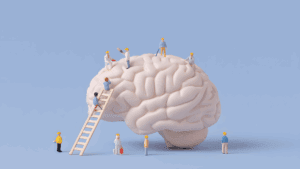Rethinking Success: Momentum from Tiny Changes
The neuroscience of micro-changes offers convincing evidence: enduring change starts not with significant, flashy actions, but through consistent, minor improvements. Research indicates that these small changes are the foundation of sustainable transformation. In neuropsychology, minor adaptations bypass the overwhelm often triggered by radical resolutions, making change feel safe and repeatable.
When teams and individuals prioritize minute improvements, progress becomes attainable, measurable, and, over time, monumental. Tiny changes are accessible and implementable for anyone, regardless of starting point. Instead of focusing on a massive overhaul, those who rely on the neuroscience of micro-changes witness motivation, satisfaction, and engagement rise steadily.
Tiny changes activate the reward system in the brain with every achievement, driving momentum forward. This focus on modest transformations not only improves performance but also bolsters self-esteem and emotional well-being. Over time, the science shows, momentum built on tiny changes compounds into significant expertise and confidence.
Brain Architecture: How Small Adaptations Rewire Us

Distinguished neuroscientists studying the neuroscience of micro changes have proven that the brain remodeling that occurs from frequent, incremental shifts is far greater than from rare, dramatic leaps. Subtle changes trigger new connections within neuroplastic regions, increasing the resilience and efficiency of pathways in areas such as the hippocampus and prefrontal cortex. Regular, gentle habit-formation prevents cognitive overload, making these advancements both robust and sustainable. The process of minute improvements supports healthy aging, improved focus, and more substantial memory consolidation.
Advanced imaging technology reveals the substantial effects of minor adaptations on white matter integrity and connectivity, showing that the aggregated impact of minor changes far exceeds the fleeting spikes achieved by radical changes. Clients working with the neuroscience of micro-changes experience ongoing growth, with brain networks continually evolving to support higher levels of function and emotional balance. This evidence supports the principle that minor daily adjustments, rather than occasional heroic acts, drive lasting neural and behavioral transformation.
Nature’s Formula: Evolution through Minute Improvements
Evolution favors gradual modifications above all else. The neuroscience of micro changes reflects the evolutionary process, where minor alterations accumulate to produce resilience, innovation, and survival. Research in evolutionary psychology supports the role of minute improvements in the development of communication, creative problem-solving, and social cohesion. In both natural ecosystems and human organizations, steady progress through incremental changes enables safe experimentation and effective risk management. Over generations, these incremental shifts build competency, adaptability, and collective intelligence.
Leaders leveraging the neuroscience of micro-changes encourage experimentation and course correction, unlocking human potential without destabilizing systems. Social species rely on micro-level upgrades to strengthen collaboration and thrive under pressure. The evolutionary lesson is clear: profound progress comes from many small steps, not from quick, disruptive revolutions.
The Dopamine Loop: Reward and Tiny Wins
Motivation is sustained when the brain is regularly rewarded for inching forward. The neuroscience of micro changes demonstrates that tiny wins trigger dopamine surges, generating satisfaction and reinforcing the learning process. Rather than relying on infrequent, significant achievements, those practicing minute improvements keep their reward centers activated, resulting in higher persistence and lower rates of burnout. Journals, trackers, and digital platforms help visualize tiny wins, encouraging regular celebration and the building of positive momentum.
Habit experts teaching the neuroscience of micro-changes help clients break overwhelming goals into simple, daily tasks for a reliable and rewarding experience. With every accomplishment—no matter how modest—the motivation loop strengthens, sparking a sense of agency and long-term engagement with growth objectives. The result is higher energy and optimism, rooted in the continuous practice of making tiny changes.
Sociological Change: Ripple Effects of Incremental Shifts

Minute improvements, when adopted by individuals, rapidly influence social norms and organizational culture. The neuroscience of micro changes is magnified in group settings, where leaders and influencers modeling gradual modification inspire others to follow suit. Tiny changes introduce new routines, foster adaptiveness, and build trust through shared experimentation. Organizational scholars verify that single small steps multiply throughout networks, creating widespread engagement and collective progress.
Change becomes less intimidating, more collaborative, and ultimately more sustainable when managed as a series of tiny innovations. In schools, families, and businesses, the habit of incremental shifts encourages resilience, curiosity, and cooperation—attributes essential to thriving in complex social systems. Sociological studies reinforce a central insight of the neuroscience of micro changes: a culture of ongoing, minor adaptation is vital for sustained innovation and well-being.
Cognitive Strategies: Overcoming Barriers through Small Steps
Tiny changes are uniquely powerful in overcoming cognitive and emotional blocks. The neuroscience of micro changes reveals that small, attainable shifts reduce resistance and make transformation feel more achievable. Psychologists report that tiny changes sidestep the brain’s fear and fatigue circuits, keeping attentional resources available for continued growth. When individuals confront anxiety, procrastination, or perfectionism, the prescription is often to break tasks into their smallest possible components. These minute improvements build self-efficacy and replenish motivation at every stage, creating momentum toward larger goals.
Behavioral specialists leverage the neuroscience of micro-changes by encouraging clients to celebrate and log incremental success, ensuring lasting progress and resilience. Creative thinking also flourishes when pressure is replaced with playful experimentation and gentle iteration, and these tiny changes unlock unforeseen pathways to mastery.
Client Story: Real-Life Impact of Small Adaptations
Sarah, a former client of MindLab Neuroscience, exemplifies the power of neuroscience in making micro-changes. Struggling with perfectionism and low motivation, she felt defeated whenever significant outcomes were required. Through coaching, Sarah implemented tiny changes—writing just one sentence a day instead of an entire page. The neuroscience of micro-changes provided the mechanism for rewiring her reward system and breaking the cycle of avoidance. Each day’s simple achievement gave Sarah renewed confidence and prevented anxiety from derailing her efforts.
Her progression was steady, her manuscript eventually finished with ease, and her approach transformed across multiple life domains—fitness, work, and relationships. Sarah’s journey demonstrates how minute improvements create enduring growth, proving that the neuroscience of micro-changes is invaluable for anyone feeling stuck or overwhelmed.
Lifelong Gains: Age and the Power of Incremental Shifts
Tiny changes benefit people across every age group. The neuroscience of micro changes validates that seniors who practice daily, gentle routines—such as walking or engaging in puzzles—maintain higher cognitive flexibility and emotional well-being. Young learners thrive when incremental shifts form part of daily schoolwork, play, and growth exercises. Habit trackers and adaptive coaching programs make it easier for every generation to plan, track, and celebrate progress through small, manageable steps. Researchers have confirmed that even minute improvements can enhance brain connectivity, delay age-related decline, and foster resilience. Whether building new skills or navigating life’s transitions, the neuroscience of micro-changes offers a universally practical approach.
Sleep, Neuroplasticity, and Tiny Habits
Science demonstrates that small changes, combined with restorative sleep, lead to robust brain adaptations. The neuroscience of micro changes suggests that minute improvements practiced before bed are most likely to be consolidated during sleep, thereby strengthening memory and promoting synaptic growth. Neuroscience experts recommend combining high-quality sleep with incremental behavioral changes to ensure that gains are solidified and retained for future use. Sleep hygiene and gentle habit-building routines have become essential pillars of wellness programs for both high performers and those in recovery. The neuroscience of micro-changes serves as a blueprint for designing routines that maximize neuroplasticity and lifelong learning.
Facing Fear: Courage from Micro Changes
Overcoming fear is easier with tiny changes. Neuroscience research shows that gradual action gently quiets the amygdala, the brain’s fear center, allowing creative thinking and rational decision-making to remain online even under stress. Incremental improvements teach the mind to interpret nervousness as excitement, transforming anticipation into action rather than anxiety. Brain imaging reveals that when clients in high-pressure situations practice small steps regularly, the pathways for stress and panic begin to shrink, replaced by circuits connected to resilience and approach behavior.
These manageable steps can help disrupt old fear associations and build confidence, amplifying the rewards of success while lowering emotional risk. Over time, frequent gentle exposure to uncertainty conditions the brain to adapt, forming new habits for calm and focused recovery. For professionals or leaders, tackling high-stakes projects becomes less daunting when reframed as a series of approachable micro-actions—no one needs to conquer everything at once.
The secret to unlocking courage lies not in genetics, but in choosing the simplest step possible and building on it day after day. Neuroscience of micro changes remains the gold standard in coaching for anxiety, embedding safe exploration and steady growth into every challenge. Tiny changes truly make courage contagious, inspiring others to model resilience and turn obstacles into opportunities.
Cultural Transformation: Building Identity through Incremental Shifts
Micro changes define culture and reinforce values. Every vibrant organization, team, or family has rituals grounded in minute improvements—whether a daily check-in, a birthday tradition, or a team gratitude shout-out. These micro-actions accumulate to shape collective identity far more powerfully than big corporate announcements or sweeping reforms. Evolutionary science suggests that minor adaptations are easier to teach, practice, and scale, allowing cultures to thrive and evolve organically. When leaders embed tiny changes into routines, it signals openness to learning and reinforces a growth mindset throughout the group. T
he neuroscience of micro-changes highlights how regular affirmations and collaborative practices integrate new behaviors into shared values, while also reducing resistance to future transformation. Over time, the repeated success of these small shifts builds trust, pride, and a sense of belonging, making everyone feel invested in the direction of the culture. The legacy of resilience and engagement grows stronger across generations, sustaining organizations through change and uncertainty. Tiny changes spark innovation, offer moments for connection, and leave their mark on group memory—proving that even the most minor shift can shape an enduring legacy.
Decision-Making: Simplicity and Strategy in Small Steps

Making decisions is challenging, but the neuroscience of micro-changes suggests frequent, low-risk choices gradually build the brain’s executive muscles for focus and self-control. Research shows that when individuals practice making small, structured choices, neural networks responsible for judgment and planning become more efficient, supporting strategic thinking. Mini-decisions, such as daily prioritization or bite-sized experimentation, reduce stress and enable teams to learn from feedback without fear of failure. Simple routines—like quick debriefs, daily reflections, or streamlined workflows—promote healthy patterns for complex decision-making.
Clients who utilize these micro-strategies report reduced anxiety, faster learning, and increased creative output, particularly in high-pressure environments. Neuroscience demonstrates that regular, gentle feedback loops allow the brain to adapt quickly and make increasingly informed choices. Small steps not only accelerate learning but also create a psychological safety net, empowering leaders and teams to face uncertainty with confidence. Over time, confidence in one’s judgment grows, making advanced decision-making a natural process.
Productivity and Innovation: Continuous Advancement
Productivity soars when teams and individuals embrace incremental shifts. The neuroscience of micro changes reveals that daily minor improvements foster a mindset of experimentation, curiosity, and adaptability — essential for modern creative work. Employees who celebrate small wins experience greater motivation and remain engaged even during routine tasks. Team culture evolves as micro-actions—such as five-minute brainstorms or quick feedback sessions—enable frequent innovation and rapid responses to changes. Analytical studies have found that organizations that leverage small changes outperform competitors who rely solely on drastic moves or major overhauls.
These incremental improvements foster a sense of psychological safety, enabling everyone to try, fail, and succeed within a supportive environment. Over time, small tweaks compound, driving progress in product development, customer satisfaction, and workforce morale. Continuous advancement through incremental shifts is the antidote to stagnation and the foundation for extraordinary innovation.
Adapting for Growth: Scalable Challenge through Micro Changes
Learning intensifies with gradual escalation. Neuroscience of micro-changes demonstrates that slowly increasing the level of challenge keeps the brain engaged, avoids burnout, and highlights new strengths. Coaches who segment learning goals into mini-milestones allow clients to celebrate progress, refine skills, and maintain high energy. Edtech innovators now harness digital platforms to personalize challenge levels, fostering healthy competition and rapid mastery. Incremental adaptation supports emotional resilience, teaching individuals to weather setbacks with optimism and flexibility.
Clients who experience scalable challenges through tiny changes become more resourceful, creative, and confident, while groups benefit from inclusive routines that respect different abilities. Tiny steps reinforce the principle that anyone can learn, grow, and thrive—no matter where they start.
Compounding Success: The Power of Accumulation
Lasting transformation arises from repeated, incremental shifts. Neuroscience of micro changes instructs clients to track small wins, creating momentum and making progress tangible. A focus on accumulation teaches patience and celebrates sustainable achievement. Over weeks and months, minute improvements build expertise, enhance well-being, and reinforce a growth mindset resilient to setbacks. This positive feedback cycle promotes self-awareness, enabling individuals to recognize their strengths and identify areas for improvement more easily.
The science confirms that even modest daily adaptations lay the foundation for greatness, demonstrating that consistency outperforms intensity in achieving high performance. Those who embrace accumulation are equipped for long-term mastery in every domain—from personal goals to competitive business strategies.
Coaching Excellence: Micro-Mapping for Impact
Modern neuroscience-based coaching integrates micro-mapping, guiding clients through precise, measurable, and adaptable tiny changes for reliable growth. Dynamic dashboards and smart reminders reinforce positive behavior, thereby maintaining high engagement. Data analytics spot patterns, helping both coach and client steer progress with confidence. Neuroscience of micro-changes underpins breakthrough outcomes, even for clients who have struggled with resistance or inertia.
Micro-mapping fosters a sense of partnership, accountability, and pride—clients see tangible results and coaches deliver consistent value. Tiny changes set a benchmark for personalized, scalable coaching solutions well-suited for the digital era. As this approach gains traction, coaching becomes more accessible, motivating, and science-driven, yielding fundamental transformation at every step of the journey. Start implementing small changes that rewire your brain, allowing you to chan your life and achieve the long-term transformation you desire.
#microchanges #neuroscienceofmicrochanges #neuroplasticity #brainchange #productivity #behavioralscience #habitformation #motivation #coaching #brainoptimization #wellbeing #selfimprovement #transformation #resilience #dopamine













